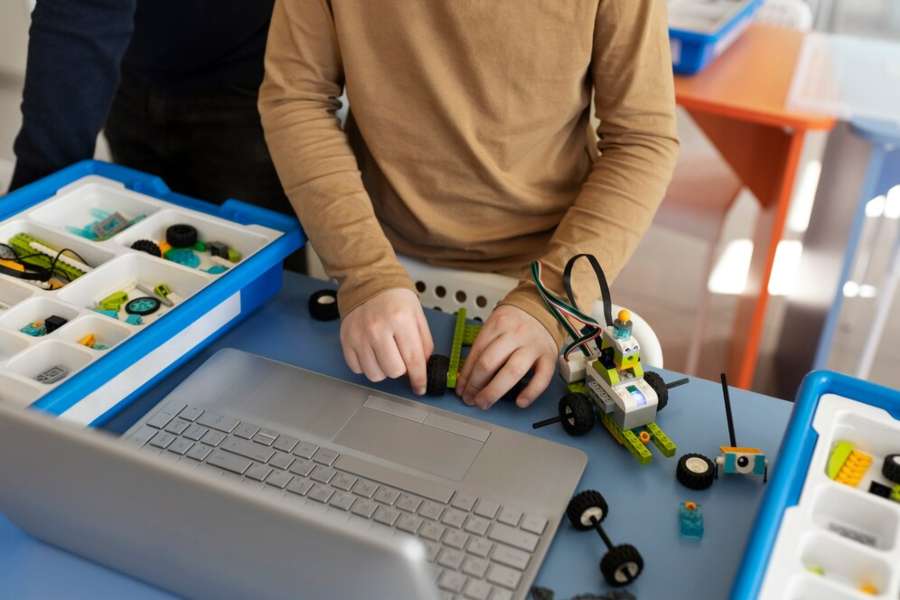Engineering summer schools are a fantastic method for students to learn more about this field. These courses emphasise experiential learning, which gives students practical experience. It goes beyond merely reading books or attending seminars. It involves experimenting, making errors, and growing from them.
Why Hands-On Learning Matters
In engineering, theory is important. But, it’s the practice that really makes a difference. Hands-on learning gives students the chance to try out their ideas and see how they work. It’s much easier to understand how something works when you can touch it, build it, or see it in action.
When students do something by themselves, they learn more than just reading about it. It becomes real for them. They make mistakes, figure out solutions, and feel the satisfaction of completing something. This type of learning also helps them build problem-solving skills. They have to think on their feet and be creative.
What You Do in a Hands-On Engineering Programme
So, what can students expect to do in an engineering summer school in Cambridge? There are a variety of projects. Some students might work on building a bridge out of everyday materials. Others might design a robot or create a model of a sustainable building.
In most programmes, students work in teams. This allows them to collaborate, share ideas, and learn from each other. It’s also an important skill for future careers. Teamwork is at the heart of most engineering jobs. Here are some examples of what students might work on:
- Building Simple Machines: In this project, students might build things like pulleys, levers, or inclined planes. These machines help students understand the basic principles of physics.
- Robotics Projects: Many engineering summer schools have robotics. Students might design a robot, code it, and then test how it works. They learn about mechanics, electronics, and coding.
- Solar Power Projects: Students might build solar-powered cars or houses. This teaches them about renewable energy and how it can be used in the real world.
- Building Bridges: A simple but fun project is to build a bridge using materials like spaghetti or popsicle sticks. Students learn about forces, stress, and how engineers test designs.
How Hands-On Learning Builds Important Skills
When students engage in hands-on learning, they aren’t just learning about engineering. They’re also building important life skills. For example, they learn how to:
- Solve Problems: Engineering is all about finding solutions. Hands-on projects give students the chance to identify problems and work out ways to fix them. Whether it’s a broken robot or a bridge that can’t hold weight, they’ll learn how to solve it.
- Think Critically: In engineering, there is no single right answer. Students have to think critically about the best way to approach a task. They’ll weigh different solutions and make decisions based on facts and evidence.
- Work in Teams: Teamwork is crucial in engineering. Students will learn how to collaborate with others. They’ll also develop leadership skills as they work together to reach their goals.
- Be Creative: Sometimes, engineering projects require creative thinking. Students might need to design something from scratch or think of an innovative solution. This encourages them to think outside the box.
Benefits of Engineering Summer Programmes
Engineering summer schools offer many benefits for students, especially those who are considering a career in engineering. Some of the benefits include:
- Exposure to Different Fields: Engineering is a broad field with many areas to explore. In a summer programme, students can get a taste of different types of engineering, like civil, electrical, mechanical, and chemical. This can help them decide which area they want to pursue in the future.
- Learning from Experts: Many summer programmes are led by experienced engineers or university professors. Students get the chance to learn from people who are working in the field. This is a valuable experience that can help students learn more quickly.
- Building a Portfolio: Completing a hands-on project gives students something to show for their efforts. A completed project or prototype can be added to their portfolio. This can be helpful when applying to universities or for internships in the future.
- Meeting Like-Minded People: Engineering summer courses are a great opportunity to meet other students who are interested in engineering. Students can share ideas, make friends, and network with people who have similar interests.
- Gaining Confidence: When students successfully complete a project, it boosts their confidence. They learn that they can solve problems and create things, which is a great confidence builder.
Choosing the Right Programme
When selecting an engineering summer course, students should consider a few things. First, they should think about what area of engineering interests them the most. Some programmes may focus on robotics, while others may focus on renewable energy or environmental engineering.
It’s also important to consider the programme’s duration and location. Some summer programmes are short, lasting only a week or two. Others may last a month or longer. Students should choose a programme that fits their schedule and location.
Finally, it’s important to look at the programme’s reputation. Researching reviews from previous participants can give students a good idea of what to expect. They should also check whether the programme provides mentorship or access to university professors and industry experts.
How Summer Programmes Prepare You for College
For students thinking about pursuing an engineering degree in college, summer programmes can be a great way to prepare. They introduce students to the basics of engineering and give them a glimpse of what college-level courses might be like.
Engineering summer school also helps students get a head start on their studies. They’ll learn how to work with others, solve complex problems, and apply what they’ve learned to real-world situations. These skills are essential in college and beyond.
Students have a fantastic opportunity to explore the field of engineering through engineering summer programmes. The ideal method for developing critical thinking, problem-solving, and collaboration skills, as well as for understanding how things operate, is through hands-on learning. Summer engineering programmes are a fantastic way for students to learn more about engineering. The greatest approach to comprehend how things function and to hone critical thinking, problem-solving, and collaboration abilities is through experiential learning.










